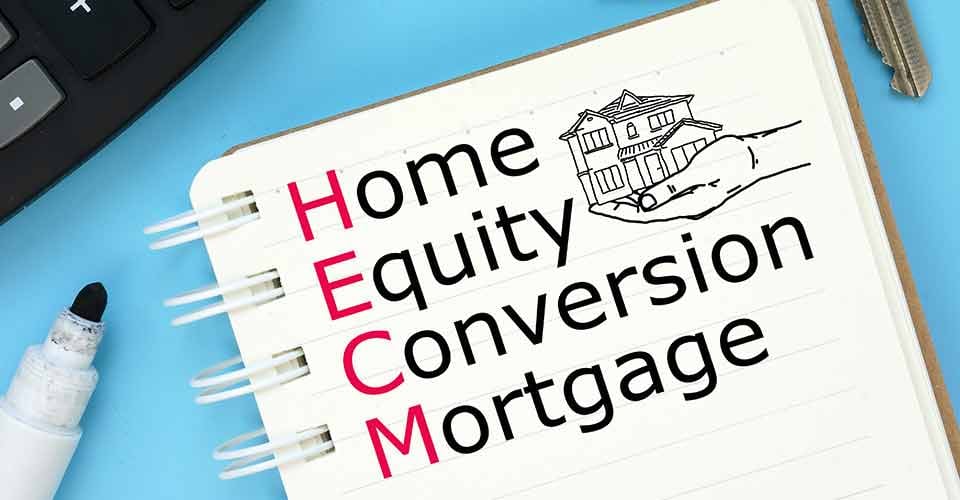Breaking Down Costs on Equity Release Mortgages
Breaking Down Costs on Equity Release Mortgages
Blog Article
Discovering the Different Types of Equity Release Mortgages Available Today
Equity Release home loans existing numerous options for property owners aged 55 and over. equity release mortgages. These monetary products satisfy various needs and preferences, allowing individuals to gain access to funds from their residential property. From life time home loans to common appreciation home loans, each kind offers distinctive advantages. Understanding these choices is vital for making educated choices. What elements should one think about when choosing one of the most appropriate equity Release strategy? The information that comply with might clarify this important subject
Comprehending Equity Release Mortgages
Equity Release home mortgages offer property owners, generally those aged 55 and over, with a method to access the worth bound in their property without needing to sell it. This financial alternative allows people to convert a portion of their home equity right into cash money, which can be used for numerous purposes, such as home renovations, settling debts, or financing retirement.Equity Release can take various forms, however it fundamentally involves borrowing against the worth of the home while preserving possession. House owners can select to obtain a round figure or a series of smaller sized settlements, depending upon their economic requirements and preferences.Additionally, the quantity readily available for Release is influenced by the residential property's worth, the property owner's age, and certain loan provider criteria. Generally, comprehending equity Release home mortgages is necessary for house owners to make informed choices regarding using their home's equity while taking into consideration the long-term ramifications.
Lifetime Mortgages
Lifetime home mortgages stand for among one of the most prominent forms of equity Release. This economic item permits property owners, normally aged 55 or older, to obtain against the value of their residential property while retaining possession. The finance, which is safeguarded against the home, accumulates passion in time however does not require regular monthly payments. Instead, the financing and accumulated interest are settled when the homeowner passes away or relocates right into lasting care.Lifetime home mortgages offer versatility, as customers can choose to obtain a swelling sum or choose a drawdown facility, accessing funds as needed. Notably, many plans featured a no-negative-equity assurance, making sure that borrowers will never owe greater than the value of their home. This feature offers comfort, enabling people to appreciate their retired life without the worry of depleting their estate. In general, lifetime home loans act as a sensible choice for those seeking financial backing in later life.
Home Reversion Program

Drawdown Lifetime Mortgages
While several home owners look for methods to access their wide range, drawdown lifetime home loans offer a flexible option that enables people to Release funds gradually. This type of equity Release home mortgage enables property owners to borrow versus the worth of their home while retaining ownership. Unlike conventional lifetime home loans, drawdown plans allow borrowers to access a part of their equity upfront and take out additional funds as needed, approximately a predetermined limit.This function can be particularly helpful for those who desire to manage their funds thoroughly, as it decreases passion accumulation by only charging interest on the amounts drawn. Additionally, drawdown lifetime home mortgages frequently include a "no unfavorable equity assurance," ensuring that consumers will certainly never owe more than their home's value. This alternative fits senior citizens that want financial safety and adaptability, permitting them to meet unanticipated costs or preserve their way of living without needing to offer their property.
Boosted Life Time Mortgages
Improved Lifetime Home mortgages use distinct benefits for qualified home owners seeking to Release equity from their homes. Understanding the eligibility standards is important, as it establishes who can take advantage of these specialized lendings. Nonetheless, it is also vital to assess the prospective disadvantages connected with improved options, guaranteeing a well-rounded viewpoint on their use.
Qualification Standards Explained
Understanding the qualification criteria for Boosted Life time Mortgages is vital for prospective applicants looking for to access the equity in their homes. Typically, applicants should be aged 55 or older, as this age demand is basic in the equity Release market. Property owners must possess a residential property valued at a minimum limit, which can vary by lending institution. Significantly, the home must be their key residence and in excellent condition. Lenders usually evaluate the property owner's health standing, as particular wellness problems may improve qualification and benefits. Furthermore, candidates ought to not have existing significant financial obligations safeguarded against the building. Meeting these criteria allows individuals to check out Boosted Life time Mortgages as a sensible choice for accessing funds bound in their homes.
Benefits of Improved Mortgages
After making clear the qualification standards, it ends up being evident that Improved Life time Mortgages provide numerous significant advantages for property owners seeking to utilize their home equity. Primarily, they give access to a bigger car loan quantity compared to common lifetime home loans, profiting those with wellness problems or age-related factors that enhance their life expectations risk. This boosted borrowing capacity permits home owners to satisfy various monetary demands, such as home improvements or retired life expenditures. Additionally, these home mortgages generally feature versatile payment choices, allowing consumers to handle their finances more successfully. The no-negative-equity warranty better assures that house owners will never ever owe more than their residential property's value, supplying satisfaction. In General, Enhanced Lifetime Mortgages provide an engaging option for eligible house owners looking for financial services.
Potential Downsides Considered
While Enhanced Lifetime Home mortgages provide countless advantages, potential drawbacks warrant careful factor to consider. One considerable issue is the effect on inheritance; the equity launched decreases the value of the estate left to recipients. Furthermore, these mortgages can accumulate significant interest gradually, resulting in a significant financial debt that may surpass the original funding amount. There may additionally be constraints on residential or commercial property alterations or rental, restricting home owners' flexibility. Additionally, improved items usually require particular wellness conditions, implying not all house owners will qualify. Finally, taking care of the fees and charges linked with these home mortgages can be intricate, possibly bring about unforeseen prices. As a result, individuals ought to thoroughly analyze their scenario and that site speak with financial consultants before proceeding.
Shared Admiration Mortgages
Shared Appreciation Mortgages stand for an unique financial plan that enables house owners to accessibility equity while sharing future building worth enhances with the lending institution. This strategy supplies potential advantages such as decreased monthly settlements, yet it additionally features drawbacks that must be meticulously considered. Understanding the eligibility needs is vital for those curious about this alternative.
Principle Review
Equity Release mortgages, particularly in the kind of shared appreciation mortgages, supply homeowners an one-of-a-kind monetary solution that permits them to access funds by leveraging the worth of their residential or commercial property. In this setup, a lender offers a lending more tips here to the house owner, which is commonly settled with a share of the residential property's future appreciation in value. This indicates that when the homeowner sells the residential property or passes away, the lender obtains a portion of the increased worth, as opposed to simply the preliminary loan amount. Shared recognition mortgages can be appealing for those aiming to supplement their revenue or financing significant expenses while retaining ownership of their home. However, the economic effects of shared gratitude have to be meticulously considered by potential customers.
Disadvantages and advantages
Although shared recognition home loans can give considerable financial advantages, they additionally feature notable disadvantages that possible borrowers ought to consider. These mortgages allow house owners to gain access to equity in their homes while sharing a section of any type of future gratitude with the lender. This setup can be useful throughout times of rising building worths, supplying considerable funds without regular monthly repayments. The primary disadvantage is the prospective loss of equity; property owners might finish up with considerably lowered inheritance for heirs. In addition, the complexity of the terms can result in misunderstandings concerning repayment commitments and the portion of admiration owed. It is vital for borrowers to weigh these factors carefully prior to committing to a common gratitude home loan.

Eligibility Needs
What criteria must house owners fulfill to get approved for a common recognition home mortgage? Mainly, candidates must be at the very least 55 years of ages, ensuring they are within the target demographic for equity Release products. In addition, the home must be their main home and usually valued over a specified minimum limit, commonly around ? 100,000. Lenders additionally assess the home owner's monetary circumstances, including income and arrearages, to ascertain they can take care of the mortgage sensibly. Significantly, the residential property should remain in great problem and devoid of substantial lawful encumbrances. House owners ought to additionally have a clear understanding of the terms, including exactly how admiration will be shared with the lending institution upon sale or transfer of the residential property, as this affects total returns.
Choosing the Right Equity Release Option

Regularly Asked Questions
What Age Do I Required to Be for Equity Release?
The age need for equity Release normally starts at 55 for many plans. Nevertheless, some providers might provide alternatives for those aged 60 and above, showing varying terms based upon individual conditions and lending institution policies.
Will Equity Release Influence My Inheritance?
Equity Release can affect inheritance, as the amount obtained plus passion reduces the estate's worth. Beneficiaries might get less than prepared for, depending on the home's recognition and the total financial obligation at the time of passing.
Can I Move House With Equity Release?
The inquiry of relocating residence with equity Release arises frequently. Generally, individuals can transfer their equity Release plan to a new home, however details terms and conditions may apply, needing consultation with the lending institution for guidance.
Are There Costs Connected With Equity Release Mortgages?
Costs connected with equity Release home loans can consist of plan costs, valuation costs, and legal expenses. Furthermore, there might be very early repayment costs, which can influence the general price and monetary implications for the consumer.
Just How Does Equity Release Effect My Tax Circumstance?
Equity Release can affect one's tax obligation situation by possibly enhancing taxable income, as launched funds are thought about funding. However, it generally does not sustain instant tax obligation responsibilities, making it vital to seek advice from a financial expert for tailored assistance.
Conclusion
In recap, the range of equity Release home loans readily available today provides house owners aged 55 and over numerous paths to access their property's value - equity release mortgages. Whether choosing a life time home loan, home reversion plan, or other options, each alternative provides distinctive advantages tailored to individual economic needs. Careful consideration and assessment with an economic expert are important to ensure the picked equity Release service straightens with individual objectives and financial conditions, inevitably helping with notified decision-making for a safe monetary future. Equity try this Release home mortgages existing numerous options for homeowners aged 55 and over. Equity Release home mortgages supply house owners, typically those aged 55 and over, with a means to access the value tied up in their home without needing to offer it. Enhanced Lifetime Home mortgages use unique benefits for qualified property owners seeking to Release equity from their buildings. Equity Release home mortgages, particularly in the form of common gratitude mortgages, use homeowners an one-of-a-kind financial service that permits them to accessibility funds by leveraging the value of their residential property. In recap, the selection of equity Release mortgages offered today uses homeowners aged 55 and over multiple pathways to access their residential or commercial property's worth
Report this page